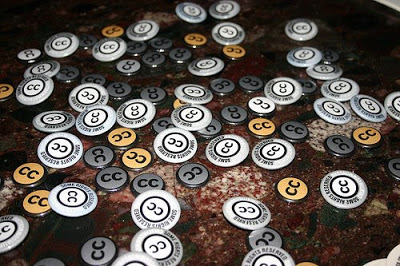Creative Commons: For and Against

 An interesting article with arguments for and against the Creative Commons movement. Several examples from an Asian viewpoint are also stated in this article.
An interesting article with arguments for and against the Creative Commons movement. Several examples from an Asian viewpoint are also stated in this article.Creative Commons (CC) resources are all around us, and continue to multiply by the day.
Is Creative Commons here to stay, or is it just another passing fad invented by internet hippies? Is it, like the world wide web in its beginnings, still restricted to the English-speaking world? Are people outside the anglosphere using CC, and if so, how?
At first glance, the CC ecosystem is alive and flourishing. The official showcase for the project is at http://creativecommons.org/commoners, but there is already more CC content than you can shake a stick at at portals such as DeviantArt, YouTube, Instructables.com and the online bookstore Lulu.
When it comes to education, there are already many teachers and experts worldwide trying to build a really open system for textbooks and other educational material. The biggest CC success in this field, at least for content in English, is probably the Connexions portal. One of its more popular authors is Catherine Schmidt-Jones, whose textbook, Basic Music Theory, has so far been viewed seven million times. Another popular portal of the same kind is www.opentextbook.org.Creative Commons fever has spread to all types of artistic expression and design.
But not everyone is in favour of Creative Commons…The most common criticism is that CC doesn’t fight copyright, it just puts a nice, much friendlier face on it. CC leaves unchallenged the concept that property rights on creative works are a good thing, and unfairly favours the creators of culture over the consumers, as only authors decide what others can do with their work. Another common objection is that there are too many Creative Commons licences, which creates confusion and even serves to limit the free circulation of content.
Last but not least, the majority of today’s CC-licensed works are only available online, making them irrelevant in places where fast internet access is absent or too expensive.
Indian journalist Frederick Noronha basically agrees with Sasi: “There is an overall culture of sharing knowledge here, even if this isn’t called ‘Creative Commons’. We had the launch of CCIndia in early 2007, but there seems to be little activity there… I think CC is a bit too conservative and too respectful of copyright issues. Copyright has not worked for us (in the developing world) for generations. Generally speaking, copyright in any form, including CC, doesn’t fit in too well with Asian ideas of knowledge, since it enables those controlling knowledge and information over the rest, and we find it impossible to emerge winners in this game. It is a colonial law, not meant to serve the interest of the people of those parts of the globe that are not ahead in the information race! Why should we be as respectful to it, as, say, Lawrence Lessig is?”
Read the entire article here.
Image Source: nicholas macgowan






